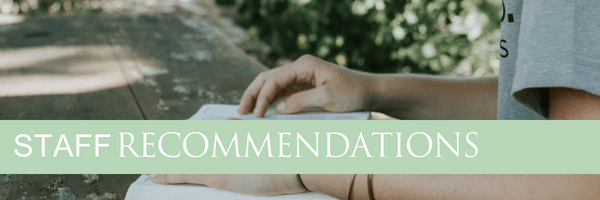3 Ways to Reflect on the Past Year

With the year drawing to a close, it’s a natural time to look back on the past twelve months. For many, the new year is a time when we can start over – a fresh change to accomplish our goals and be the people we want to be. With that in mind, it’s also helpful to reflect on the past year. Reflecting regularly on how you’re spending your time, what your goals are, and the way your life is going is a great way to help you align your actions and values.
Remember, even if some things didn’t go the way you wanted them to over the last year, reflection can help us explore patterns, unearth feelings we didn’t know we had, and strengthen our relationships with ourselves (and others).
How can you take some time this month to reflect on 2019? Here are some of our favorite ways.
Think about your highs and lows
What went well this past year? What were your happiest moments? On the other hand, what didn’t go well? What moments were hard for you? Think over the highs and lows of the past year. You don’t have to list everything that happened ever, but you can make a bullet-pointed list of some good things and some tough things. Try to spot the themes on your list. For example, if all of your happy moments happened with other people, you might consider spending more time with your friends next year. If your tough moments were all work-related, that might prompt you to think about ways to improve your mindset at work or to find a new job entirely.
Scroll through the camera roll on your phone
It can be hard to remember exactly what happened this year, but you can help yourself out by referring to your photos. Scroll back to the beginning of 2019, and take some time to go through the pictures you took or saved this year. What did you think was worth remembering? What stands out? Are you surprised by what made it into your camera roll? This little stroll through your phone’s memory can help unlock things we forgot over the last year. You can see who you spent your time with, get an idea of your moods, and keep track of where you went and what you did. Does your camera roll reflect the year you felt that you had? If yes, how so? If not, what is missing?
Think about your intentions
As we discussed last year, New Year’s Resolutions can be a bit of a mixed bag. Instead, we suggest setting a yearly intention instead of making resolutions. One way to set a New Year’s Intention is to take any resolutions you have, and narrow them down to their guiding principle or value–that’s what an intention is. It’s not a goal or a task to check off a to-do list, it’s a new lens to look at your daily actions. With this simple shift, you can reorganize your way of thinking. Instead of having a big task, you have a year full of opportunities to gain more clarity & form smaller, more sustainable habits to achieve your goals. So, what’s a goal you had in 2019? Did you accomplish it? What is the guiding value behind that goal? Take some time to journal on these questions to see where your intentions take you.
Block off an hour or two this month and take some time to think over how this year went for you. That way, you’ll be in the right headspace to jump right into 2020 and not miss a beat.
Want to schedule a 10-minute call with our Intake Coordinator? Check out our scheduling link here.

Answers to Distraction by Edward M. Hallowell M.D. and John J. Ratey M.D.
This book dives deep on some of the most frequently asked questions about Attention Deficit Disorder. The authors discuss the disorder in-depth, telling you what you need to know, and they also include information on treatment options and advice for folks living with ADD in their day to day lives. This book is a fantastic reference for anyone living with ADD or who has someone who lives with ADD in their lives.
Healthy Dependency: Leaning on Others Without Losing Yourself by Robert F. Bornstein PhD and Mary A. Languirand PhD
“Too much dependency in our relationships can be a bad thing, but too little dependency is just as bad. Healthy dependency—that flexible middle ground between rigid independence and unhealthy overdependence—is the ability to balance intimacy and autonomy, lean on others while maintaining a strong sense of self, and feel good (not guilty) about asking for help when you need it.”

ADDitude website – this website and magazine focus on adults and children who live with ADHD.
From the ADDitude website:
In ADDitude, you’ll find practical solutions you can act on immediately, whether the challenge you’re facing is to:
- determine whether you or a loved one has ADHD, learning disabilities, or another condition
- research treatment options, the right combination of medication and natural treatments to manage ADHD symptoms
- create systems that will help you keep track of your keys and get to work on time every day
- distinguish symptoms of mood disorders, anxiety, learning disabilities, and other mental health conditions from ADHD
- connect with a community who understand the emotions and daily joys of living with ADHD
Traveling over the holiday?
Remember that Holistic Consultation offers telehealth services. If you’re traveling out of town for the holidays or if you’re worried about wintry weather, you may still be able to meet with your therapist online. You can have therapy when you need it.
Learn more here.
Want to schedule a 10-minute call with our Intake Coordinator? Check out our scheduling link here.
